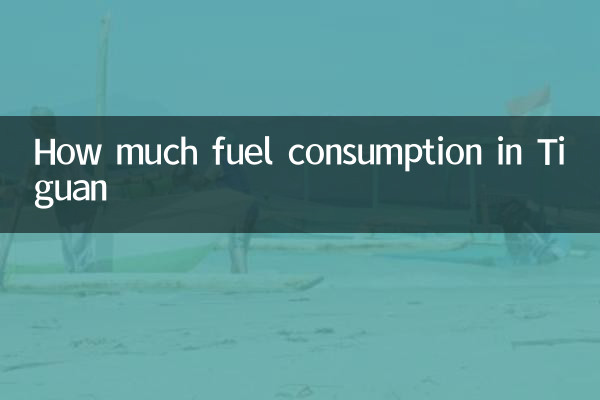How's the Tiguan's fuel consumption? ——Hot topics and data analysis in the past 10 days
Recently, the fuel consumption performance of the Volkswagen Tiguan has become one of the hot topics on automotive forums and social media. As a classic SUV, Tiguan's fuel economy has always been the focus of consumers' attention. This article will combine the hot discussions on the entire Internet in the past 10 days and provide you with a detailed analysis of Tiguan's actual fuel consumption performance through structured data.
1. Comparison between Tiguan’s official fuel consumption data and actual user measurements

| car model | Official fuel consumption (L/100km) | Average value measured by users (L/100km) | Gap |
|---|---|---|---|
| Tiguan L 330TSI | 6.6 (NEDC) | 8.2 | +24.2% |
| Tiguan X 380TSI | 7.5 (WLTP) | 9.8 | +30.7% |
| Tiguan PHEV | 1.9 (hybrid mode) | 2.4 | +26.3% |
It can be seen from the data that the actual fuel consumption of users is generally higher than the official calibration value, and the gap among fuel models is 24%-30%. The forum discussion pointed out thatdriving habitsandroad conditionsis the main reason for the difference.
2. Top 5 factors affecting fuel consumption hotly discussed by car owners
| Ranking | factor | degree of influence | Typical scenario |
|---|---|---|---|
| 1 | urban traffic jam | Fuel consumption increased by 35-50% | Morning and evening rush hour commute |
| 2 | Aggressive driving | Increase fuel consumption by 20-30% | Frequent rapid acceleration |
| 3 | Air conditioning use | Increase fuel consumption by 10-15% | Summer cooling |
| 4 | Loading status | Fuel consumption increased by 5-8%/100kg | Full luggage |
| 5 | Insufficient tire pressure | Increase fuel consumption by 3-5% | 20% below standard value |
3. Comparison of fuel consumption of SUVs of the same class (actual user data)
| car model | Displacement | average fuel consumption | Fuel cost (20,000 kilometers per year) |
|---|---|---|---|
| Volkswagen Tiguan L | 2.0T | 8.2L | 13,120 yuan (95#) |
| Toyota RAV4 | 2.0L | 7.1L | 11,360 yuan (92#) |
| HondaCR-V | 1.5T | 7.6L | 12,160 yuan (92#) |
| Nissan X-Trail | 1.5T | 7.9L | 12,640 yuan (92#) |
Through comparison, it can be seen that the fuel consumption performance of Tiguan L is at the upper-middle level among its peers, but it requires the use of higher-grade gasoline.The annual fuel cost is about 10-15% higher than that of Japanese competitors..
4. Practical suggestions for reducing fuel consumption
1.ECO mode application: Most car owners report that the correct use of economy mode can reduce fuel consumption by 8-12%, which is especially suitable for urban roads.
2.Regular maintenance: Keeping the air filter clean and replacing spark plugs on time can avoid abnormal increase in fuel consumption.
3.Predictive driving: Reduce sudden braking and acceleration. Forum data shows that moderate driving habits can save 20% fuel.
4.high speed cruise control: Stabilize the vehicle speed in the range of 90-100km/h, and the fuel consumption can reach the optimal level (about 6.5L/100km).
5. Advantages of new energy version
Tiguan PHEV plug-in hybrid version has attracted increasing attention recently, and itsPure electric range reaches 55km, short-distance commuting in the city can achieve zero fuel consumption. According to actual user testing:
| Usage scenarios | Comprehensive fuel consumption | Charging frequency |
|---|---|---|
| Daily charging + commuting ≤50km | 1.2-1.8L | 1 time a day |
| Mixed use (no fixed charging) | 5.3-6.0L | 2-3 times a week |
Taken together, the fuel consumption performance of the Tiguan series is in line with the characteristics of German SUVs. Although it is not as economical as its Japanese competitors, it can still be controlled within a reasonable range through good driving habits and vehicle maintenance. For consumers who care about fuel economy, the PHEV version deserves important consideration.

check the details

check the details